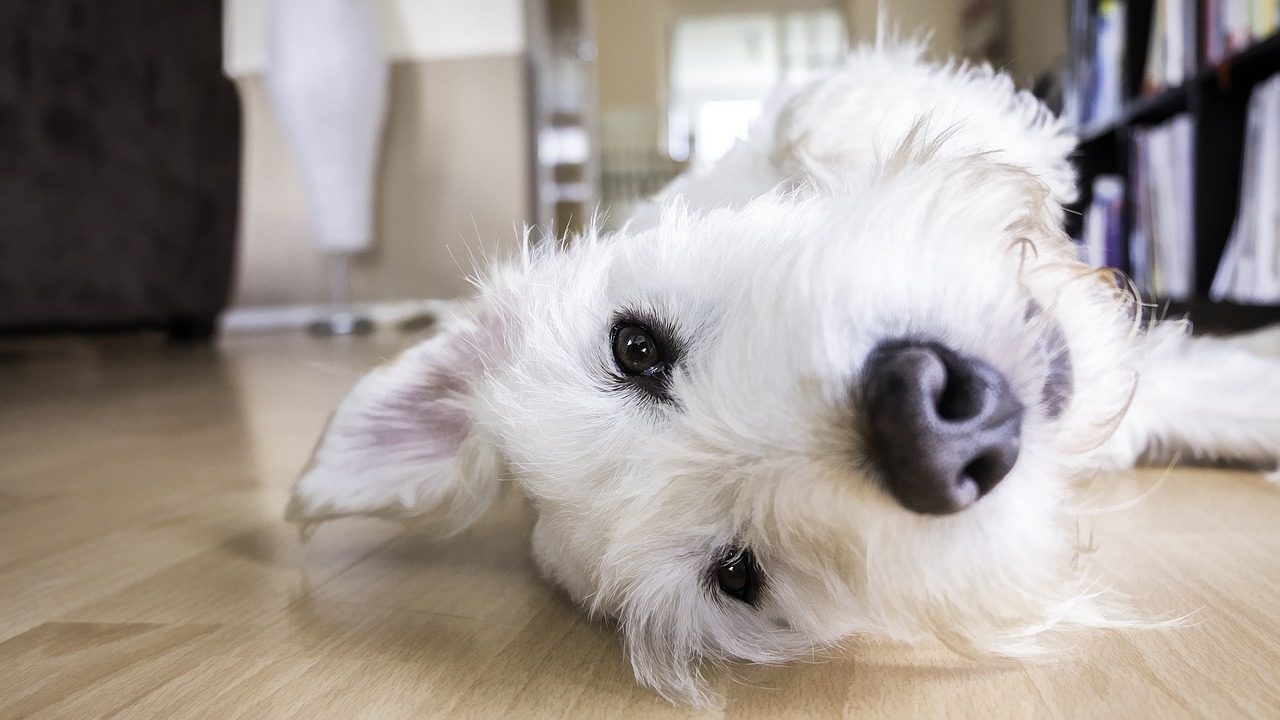
When you first get hardwood floors installed in your home, you understandably want to keep them in pristine condition for as long as possible. But, of course, life gets in the way, and scratches and other imperfections can and do happen. It’s important to know what can scratch your hardwood floors, and how to prevent those from happening.
From your dog’s nails to the kids’ dirty shoes, it takes some diligence and repeated warnings to keep your floors looking like new all the time. But accidents happen, and people forget. So, let’s go over how common scratches occur and how you can fix them.
Ways to Prevent Scratches
It doesn’t cost an arm and a leg to prevent scratches on wood floors. It just takes some basic care, cleaning and diligence to minimize the occurrence of scuffs. With regular cleaning, you’ll not only remove dirt and dust, you’ll also be in the best position to notice anything out of the ordinary that wasn’t there before. This way, you can repair the area before it gets worse.
Remember, natural wood is always at risk of wear and damage to the surface, so prevention is key.
- Dust the floors weekly with a microfiber duster.
- Clean the floors with a microfiber mop or pre-moistened hardwood floor cleaner pads. You’ll find that these pads are designed for multiple surfaces, such as laminate, engineered and hardwood flooring. Choose the appropriate one for you.
- When cleaning, use a gentle motion and stay away from brooms or abrasive scrubbing pads to avoid further scratches. Don’t soak your floor with water or a liquid cleanser; rather, use a soft mop or vacuum instead, says Bob Vila.
- Stick pads on the bottoms of all furniture legs in case you have to move them along your floors.
- Do not wear shoes on the hardwood flooring, especially high heels or cleats.
- Keep your pets’ nails trimmed.
How to Hide Surface Scratches
Even with the best intentions, scratches occur. It’s inevitable. The key is to stay on top of those scratches and repair them as they happen to ensure they don’t get worse or allow the infiltration of moisture.
It’s easy to fix small scratches and minor blemishes with a DIY approach. Try using a fine tip permanent marker in the same color as the flooring or pick up a specialty wood stain pen and blending stick. These products will hide any imperfections and can be done on any budget.
Fixing Deeper Scratches
Now, if the scratches are a bit more than surface deep and won’t be hidden with a pen or blending stick, all you need is a little elbow grease, some stain, and fine-grit sandpaper. Sand the scratch down, going in the same direction as the grain. Then, brush on a small amount of stain. Not sure which shade to go with? Try to match it as exactly as you can, but if you’re unsure, try a walnut. These shades have an oily brown dye that are best for repairing scratches on hardwood floors. Just let it sit for five minutes, then use a cloth to buff it out.
Another alternative is to apply a scratch-minimizing product with a cloth, designed to fill in light-colored scratches in the same manner as the walnut oil above. Of course, if you’re nervous in any way about fixing a scratch yourself, always call a professional to avoid doing more damage.
Fixing Scratches: Engineered Flooring
Yes, engineered wood flooring is tougher than traditional hardwood floors, but this doesn’t mean it can’t still be scratched. They will appear in the highest traffic areas of your home, such as the entrance foyer, hallways and kitchens. You can repair scratches on engineered flooring with a wax-based repair kit, but always read the instructions carefully to ensure it’s right for your kind of flooring.
Using a putty knife, you can push the filler right down into the scratch, ideally rendering it invisible.
Deep Scratches: Hardwood Flooring
When you have experienced deep scratches or gouges to your authentic hardwood floors, you will need to apply a pre-colored latex wood filler – usually just good for small, deep holes. If the damage is worse than that, you will have to call in a professional.
When Should You Call a Professional?
If the damage to your flooring has scratched not only the finish but the exposed wood as well, you will need professional repair. If you leave it unchecked for a long period of time, the wood can be damaged by moisture. It’s best to repair that small area right away to avoid further damage that will be more costly and more invasive later on. The professionals at Designer Wood Flooring would be happy to visit your home for a free consultation, which will allow us to see the damage, determine the extent, and recommend the best course of action.
Hardwood Floor Care Over the Long Haul
Preventing a scratch in the first place is the best situation, of course. Making sure your hardwood flooring stays durable and beautiful throughout the coming years involves being diligent in how you care for it. Have visitors take off their shoes at the entry way. Don’t drag toys or other objects across the floors. Mop your floors gently so as not to spread grit and dirt around. Your hardwood flooring, when cared for well, should last for decades. This doesn’t mean it won’t experience some wear and tear. Cleaning and maintaining will help you prevent scratches on hardwood flooring, along with prompt repair attention with DIY approaches or professional care.
Contact Designer Wood Flooring
To learn more tips about how to prevent scratching on hardwood floors, and what to do about it if this happens despite your best intentions, we would love to hear from you. Contact us for a free consultation and quote in San Antonio 830-228-4866 or Southeast Texas at 409-201-1967.




